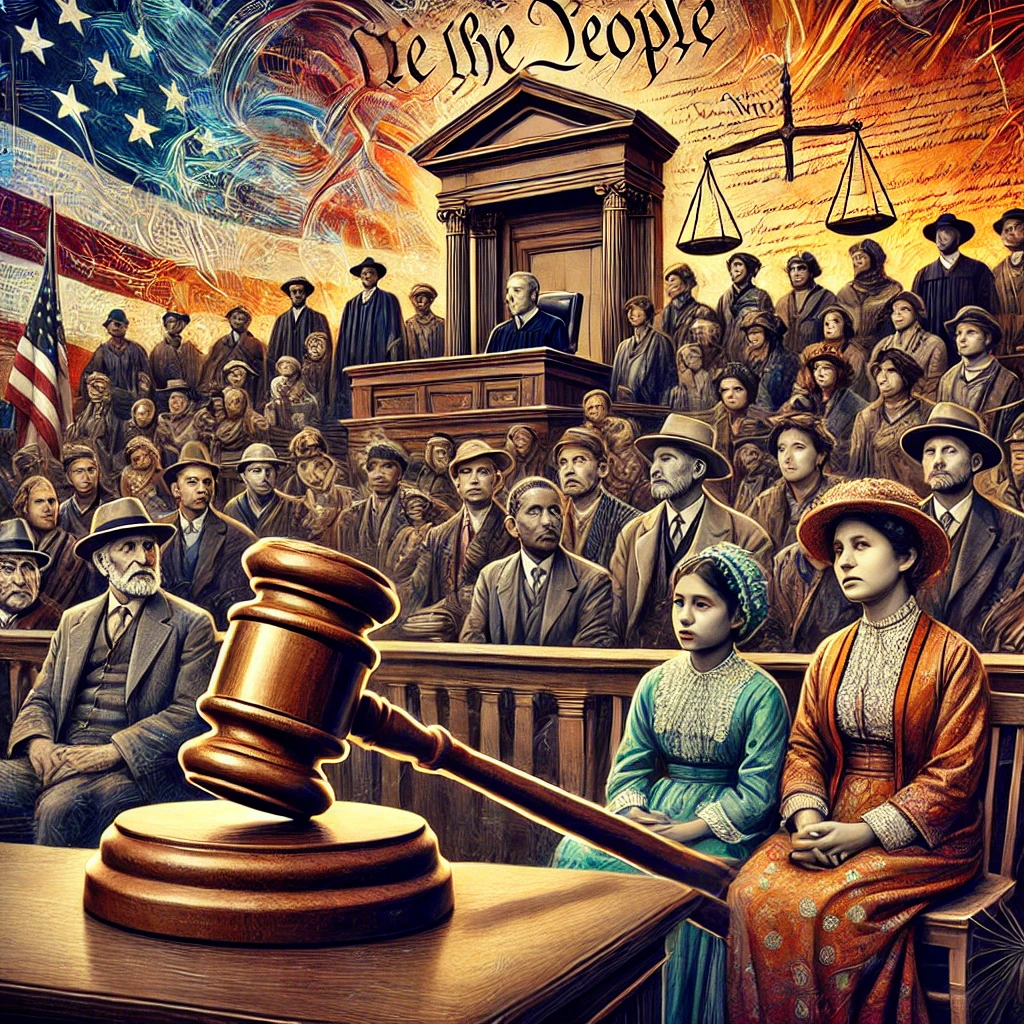
The Federal Government’s Power to Expel Non-Citizens and its Constitutional Boundaries
Fong Yue Ting v. United States, 149 U.S. 698 (1893).
Substance of the Case:
Fong Yue Ting v. United States, 149 U.S. 698 (1893).
This case examined the federal government’s power to expel non-citizens under the Geary Act of 1892 and whether deportation proceedings must comply with constitutional protections like those in criminal trials. The Supreme Court upheld Congress’s authority to regulate immigration, ruling that deportation is an administrative process, not a criminal penalty.
Facts
Background and Facts:
- The Geary Act of 1892 required Chinese laborers in the U.S. to obtain certificates of residence.
- Failure to present a certificate meant the individual was presumed unlawfully present and subject to deportation.
- Deportation could be ordered after a hearing, but the burden of proof was placed on the Chinese individuals.
- The law mandated that a “credible white witness” had to corroborate their residence, a provision reflecting the racial biases of the time.
- The petitioners, Chinese laborers who had lived in the U.S. for years but lacked the required certificates, argued that the law violated their constitutional rights under the Fifth, Sixth, and Fourteenth Amendments.
Analysis
Congress’s Plenary Power Over Immigration:
- The Supreme Court upheld the Geary Act, emphasizing that the power to exclude or expel non-citizens is an inherent right of national sovereignty.
- Justice Gray, writing for the majority, ruled that Congress has broad discretion in setting immigration policies and can delegate enforcement to the executive branch.
Deportation as an Administrative Process:
- The Court reasoned that deportation is not a criminal punishment but an administrative enforcement of immigration laws.
- Because deportation is not classified as a criminal proceeding, it does not require the same procedural protections as a criminal trial, such as a jury trial.
Discriminatory Witness Requirement:
- The law’s requirement for a white witness to vouch for Chinese immigrants was defended as a legislative choice regarding evidentiary standards.
- While the Court did not explicitly condone racial discrimination, it refused to strike down this provision.
Dissenting Opinion:
- Justice Brewer dissented, arguing that deportation is a severe punishment that deprives individuals of liberty and property.
- He contended that due process under the Fifth and Fourteenth Amendments should apply, requiring greater procedural protections.
- Brewer criticized the law as arbitrary and unconstitutional, particularly its racial discrimination.
Conclusion:
The Supreme Court upheld the Geary Act, affirming Congress’s broad authority to regulate immigration and deport non-citizens with limited procedural safeguards. The ruling distinguished deportation from criminal punishment and reinforced the executive branch’s power to enforce immigration laws without full judicial oversight.
Summary for General Audiences:
This case explored whether the U.S. government can deport non-citizens without the same legal protections given in criminal trials. The law required Chinese immigrants to prove their right to stay by presenting specific documents and witnesses. If they failed, they could be deported without a jury trial.
The Supreme Court decided that deportation is not the same as criminal punishment, so the government does not have to follow trial rules like providing a jury. The Court said that controlling immigration is a key part of the government’s power to protect the nation. However, the law also included a discriminatory rule that required Chinese immigrants to find a “credible white witness” to vouch for them.
A dissenting judge strongly disagreed, saying that deportation takes away people’s freedom and property and should require the same legal protections as a criminal trial. He believed the law was unfair and unconstitutional.
In the end, the Court upheld the law, giving Congress wide authority to manage immigration, even if the process seemed unfair. This case remains significant because it shows how the government balances its immigration powers with constitutional rights.
Let’s Get Started
Your legal challenges deserve personalized attention and innovative solutions. Contact Oware Justice Advocates PC today for a consultation and take the first step toward resolution and peace of mind.
355 South Teller Street, Suite 204,
Lakewood, CO 80226
(Visits to the office are strictly by appointment only)
303-514-6589

